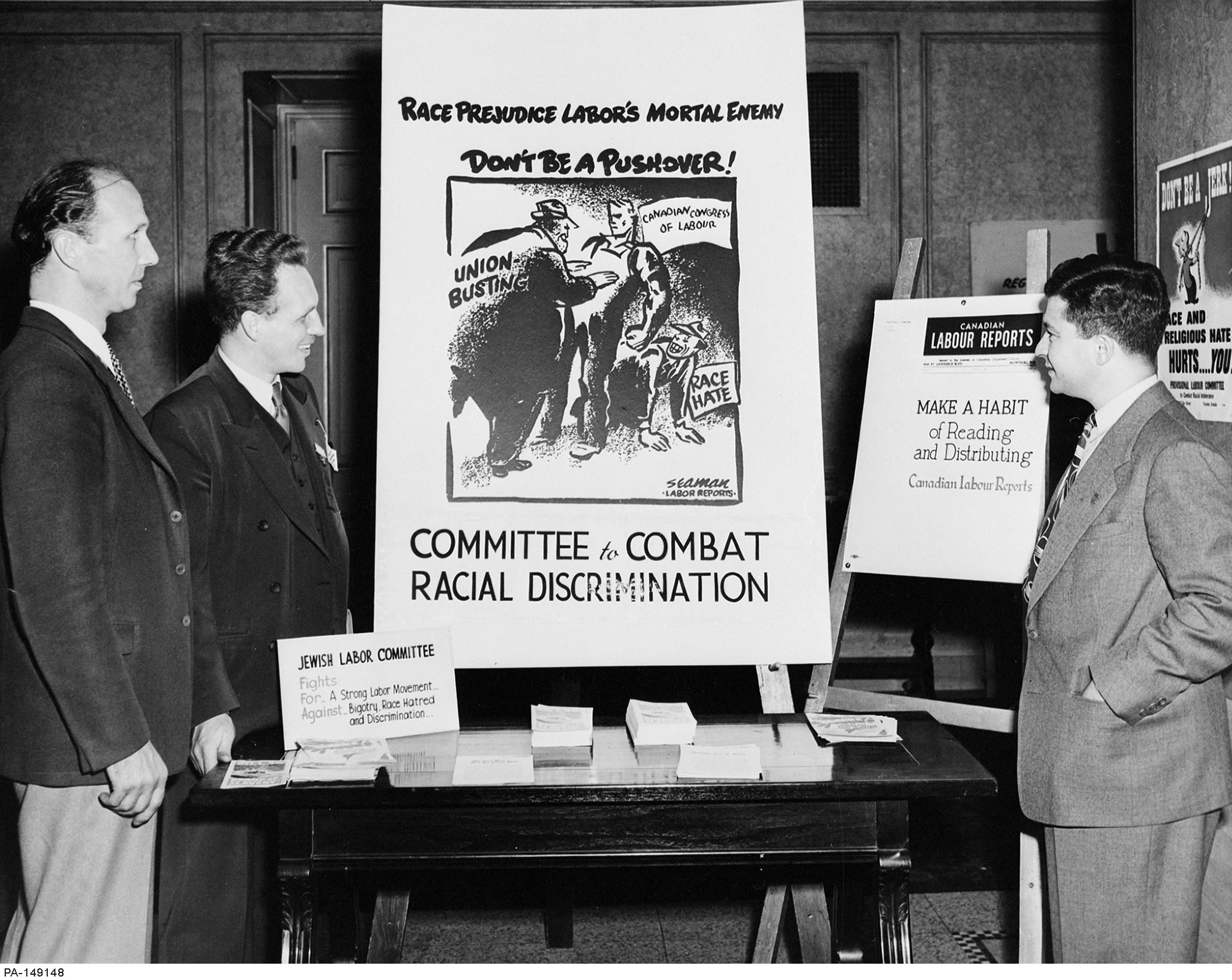Case Study: Canadian Civil Liberties Association
Canadian Civil Liberties Association (chapters in Moncton, Montreal, Kingston, Regina, Saint John, Vancouver, Timmins, Fredericton, London)
In 1964, the Progressive Conservative government of Ontario introduced Bill 99, one of the most controversial pieces of legislation in the province’s history. In response to concerns raised by the provincial Police Commission about the level of organized crime in Ontario, Attorney General Frank Cass sought to provide it with special powers to detain and interrogate suspected members of criminal associations. If enacted, Bill 99 would have allowed the Police Commission to detain individuals without notifying their next of kin, to deny them access to legal counsel, and to jail them for eight days if they refused to testify before the commission. Bail and the right to appeal could also be withheld. Those who refused to cooperate could be held in jail almost indefinitely for consecutive eight-day periods, and anyone who revealed information that had been presented before the commission was subject to a $2,000 fine and a year in prison. Liberal Opposition leader Farquhar Oliver demanded that the government retract the bill or call an immediate election. In Ottawa, J.W. Pickersgill suggested that Bill 99 made Quebec’s Padlock Act look like a bill of rights. Soon thereafter, the bill was retracted, the attorney general was replaced, and a royal commission on civil rights was appointed.
Bill 99 was the birth mother of the Canadian Civil Liberties Association (CCLA), which was incorporated in 1964. Initially, the CCLA was a national body in name only. Its precursor was the Association for Civil Liberties, which was led by Irving Himel, a Jewish lawyer. He had envisioned the Association for Civil Liberties as a national rights organization, though it spent most of its time working to secure anti-discrimination legislation in Ontario. In the wake of Bill 99, Himel called together a group of well-known Toronto personalities to form a rejuvenated rights association. Among its leaders were writers Pierre Berton and June Callwood as well as lawyers and law professors Bora Laskin, Mark MacGuigan, and Harry Arthurs. Its honorary president was former lieutenant governor Keiller Mackay, the Ontario Supreme Court judge who had famously struck down restrictive covenants in his 1947 Re Drummond Wren decision.
The CCLA soon established itself as one of the most active rights associations in Canada. In 1968, it secured a major grant from the Ford Foundation to study due process in lower courts across the country, and the resulting report, which guided its national advocacy program for years, highlighted such problems as the lack of legal counsel available to arrestees and long trial delays. Two years later, the CCLA distinguished itself, as did the BC Civil Liberties Association, as one of the few groups in English Canada to criticize the October 1970 invocation of the War Measures Act. Months later, it successfully lobbied the federal government not to implement war-powers legislation during peacetime emergencies.
In 1977, Ottawa created a royal commission to investigate allegations that the RCMP was illegally opening mail at Canada Post and that it had raided the offices of the Parti Québécois to copy its membership lists. During the commission’s investigation, the CCLA was one of the most vocal social movement organizations to call on the government to prosecute offending officers. Perhaps its most enduring work for the rights movement came with the hearings of the Special Joint Committee on the Constitution in 1980-81. When Minister of Justice Jean Chrétien introduced his revisions to the government’s proposal for a charter of rights and freedoms in 1981, the CCLA received extensive credit for having influenced most of his alterations. In fact, except for those of the Canadian Bar Association, the CCLA recommendations received more attention in Chrétien’s report than those of any other organization.
Further Reading
Borovoy, Alan. At the Barricades: A Memoir. Toronto: Irwin Law, 2013.
Borovoy, Alan. Uncivil Obedience: The Tactics and Tales of a Democratic Agitator. Toronto: Lester, 1991.
Borovoy, Alan. When Freedoms Collide: The Case for Our Civil Liberties. Toronto: Lester and Orpen Dennys, 1988.
Clément, Dominique. Canada’s Rights Revolution: Social Movements and Social Change, 1937-82. Vancouver: UBC Press, 2008.
Clément, Dominique. “An Exercise in Futility? Regionalism, State Funding and Ideology as Obstacles to the Formation of a National Social Movement Organization in Canada.” BC Studies 146 (2005): 63-91.
Thompson, Andrew S. In Defence of Principles: NGOs and Human Rights in Canada. Vancouver: UBC Press, 2010.
Archives
CCLA papers are available at Library and Archives Canada.
 Site Resources
Site Resources-
- Any use of material or referencing content from HistoryOfRights.ca should be acknowledged by the User and cited as follows:
–
- Clément, Dominique. “page title or document title.” Canada’s Human Rights History. www.HistoryOfRights.ca (date accessed).


 Encyclopaedia
Encyclopaedia 
 © 2024 COPYRIGHT CLÉMENT CONSULTING. ALL RIGHTS RESERVED.
DEPARTMENT OF SOCIOLOGY, UNIVERSITY OF ALBERTA
© 2024 COPYRIGHT CLÉMENT CONSULTING. ALL RIGHTS RESERVED.
DEPARTMENT OF SOCIOLOGY, UNIVERSITY OF ALBERTA